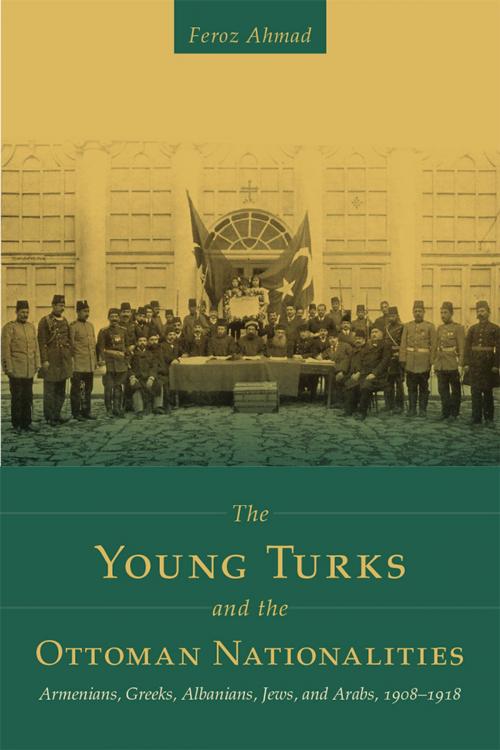The Young Turks and the Ottoman Nationalities
Armenians, Greeks, Albanians, Jews, and Arabs, 1908–1918
Nonfiction, History, Middle East| Author: | Feroz Ahmad | ISBN: | 9781607813385 |
| Publisher: | University of Utah Press | Publication: | April 11, 2014 |
| Imprint: | University of Utah Press | Language: | English |
| Author: | Feroz Ahmad |
| ISBN: | 9781607813385 |
| Publisher: | University of Utah Press |
| Publication: | April 11, 2014 |
| Imprint: | University of Utah Press |
| Language: | English |
The years 1908 to 1918 are frequently viewed as the period when the Ottoman Empire fell into decline, but in this volume, Feroz Ahmad argues that the Empire was not in decline but instead had come face to face with a widespread process of decolonization. Its colonies, stimulated by the idea of nationalism, sought to liberate themselves, sometimes with the help of the Great Powers of Europe, who in turn saw these rebellions as an opportunity to expand their own empires. While these ethno-nationalist movements have often been described in terms of Ottoman oppressor versus conspiring nationalists, here they are presented as part of a broad historical process.
Ahmad holds that nationalism was introduced into the Ottoman Empire during the French Revolution, providing kindling for the struggles that later emerged. Setting the stage with this nineteenth-century background, Ahmad then examines each Ottoman nationality in the wake of the restoration of the Ottoman constitution in 1908. Officially known as the Committee of Union and Progress (CUP), the Young Turks made up a nationalist political party that ruled the Ottoman Empire from 1908 until the end of World War I. Ahmad illuminates the relationships and conflicts between the Young Turks and the Greek, Armenian, Albanian, Jewish, and Arab ethnic groups during this period. Placing these nationalities in their historical context, he shows their relationships not only to the Young Turks but also to one anotherno other single book has attempted to look closely at all of these connections.
Anyone interested in understanding the roots of current-day relations in the Balkans and Middle East will find this book very informative. Clearly organized and written, the book will enlighten both readers and scholars.
The years 1908 to 1918 are frequently viewed as the period when the Ottoman Empire fell into decline, but in this volume, Feroz Ahmad argues that the Empire was not in decline but instead had come face to face with a widespread process of decolonization. Its colonies, stimulated by the idea of nationalism, sought to liberate themselves, sometimes with the help of the Great Powers of Europe, who in turn saw these rebellions as an opportunity to expand their own empires. While these ethno-nationalist movements have often been described in terms of Ottoman oppressor versus conspiring nationalists, here they are presented as part of a broad historical process.
Ahmad holds that nationalism was introduced into the Ottoman Empire during the French Revolution, providing kindling for the struggles that later emerged. Setting the stage with this nineteenth-century background, Ahmad then examines each Ottoman nationality in the wake of the restoration of the Ottoman constitution in 1908. Officially known as the Committee of Union and Progress (CUP), the Young Turks made up a nationalist political party that ruled the Ottoman Empire from 1908 until the end of World War I. Ahmad illuminates the relationships and conflicts between the Young Turks and the Greek, Armenian, Albanian, Jewish, and Arab ethnic groups during this period. Placing these nationalities in their historical context, he shows their relationships not only to the Young Turks but also to one anotherno other single book has attempted to look closely at all of these connections.
Anyone interested in understanding the roots of current-day relations in the Balkans and Middle East will find this book very informative. Clearly organized and written, the book will enlighten both readers and scholars.















